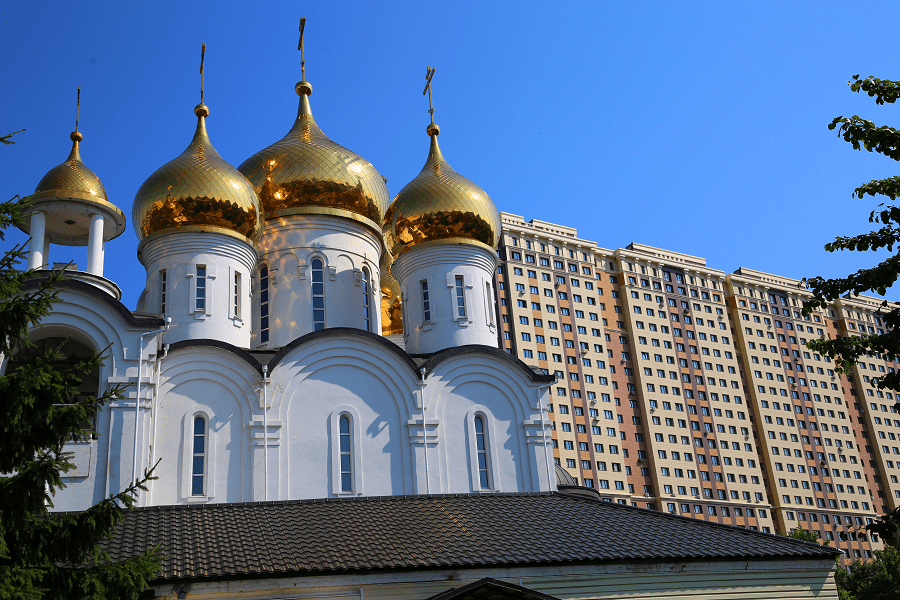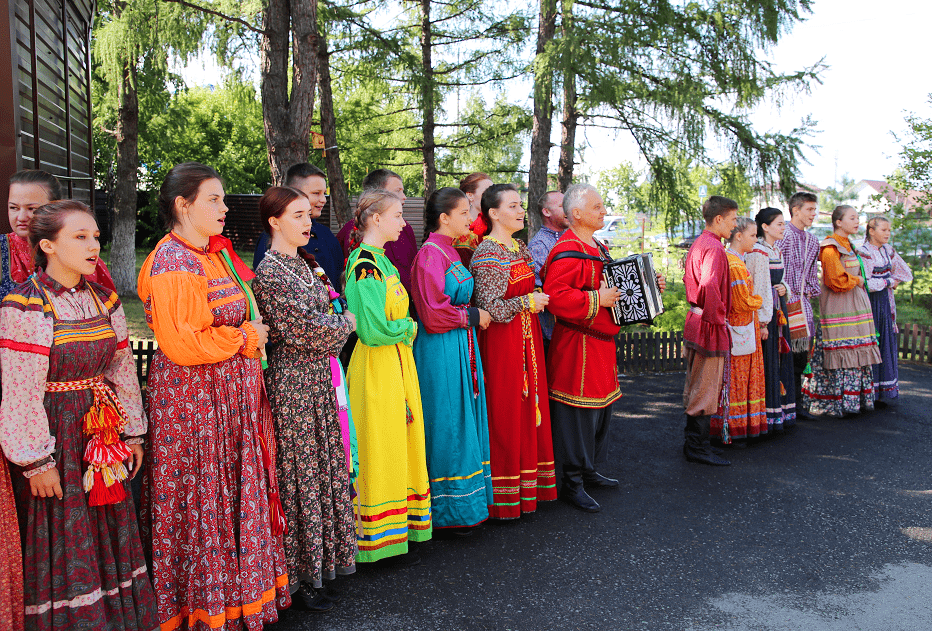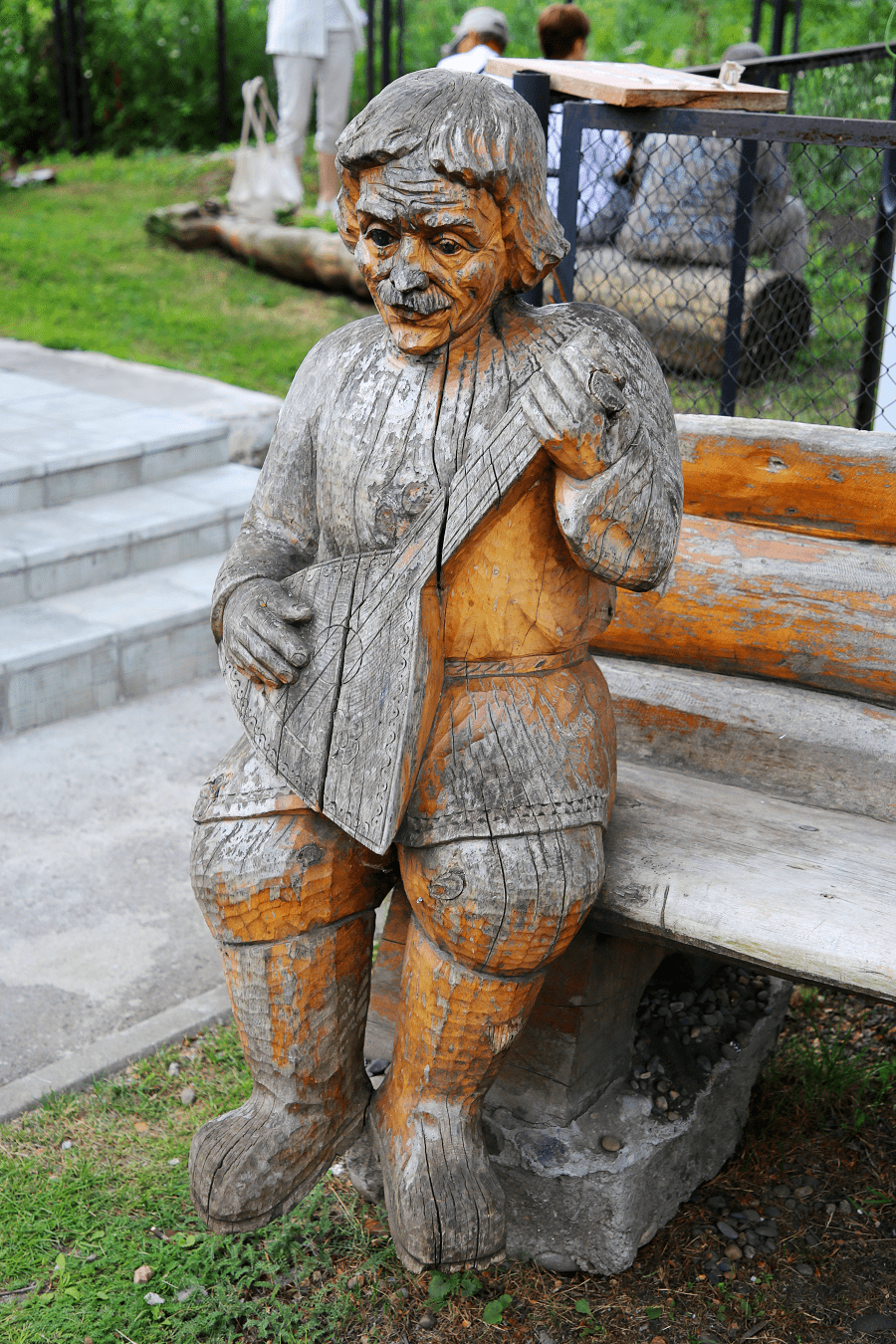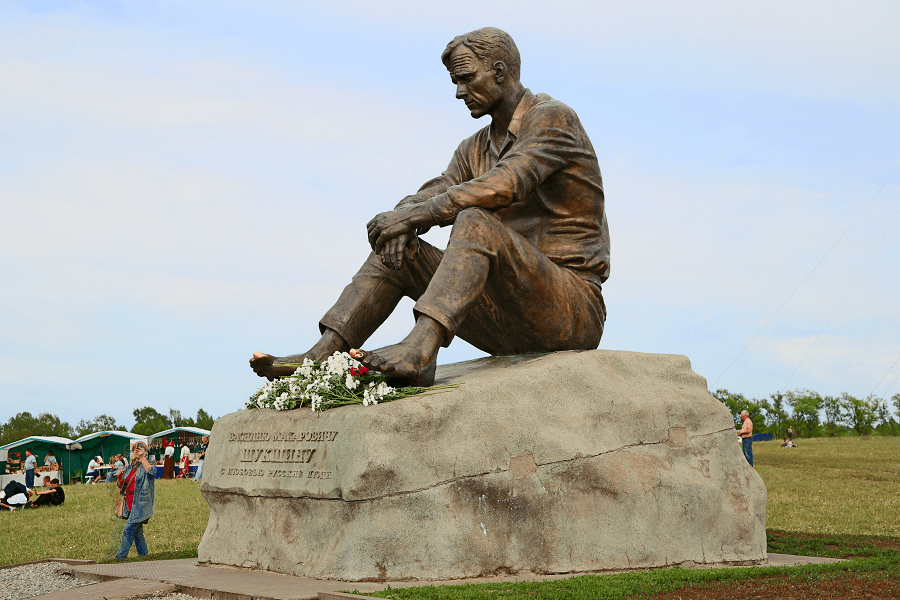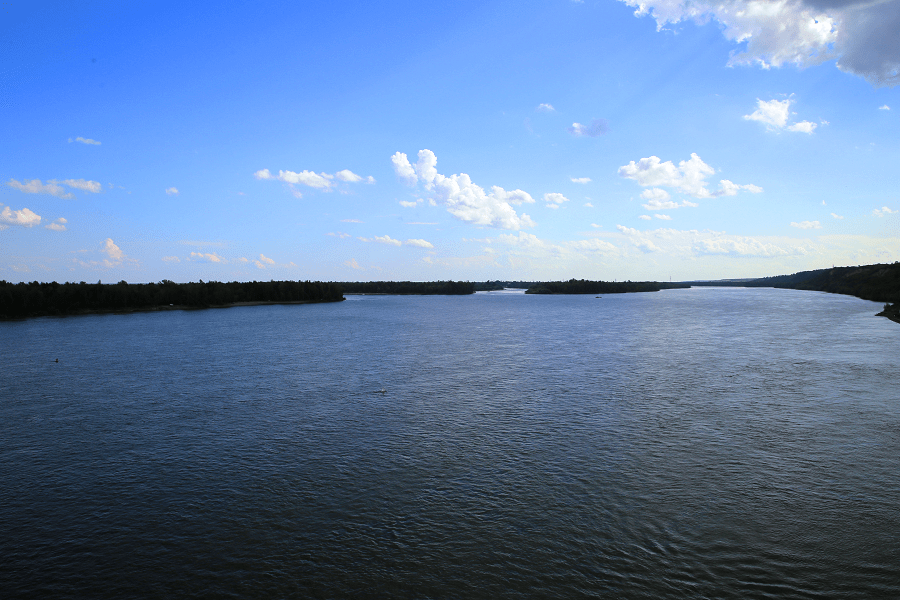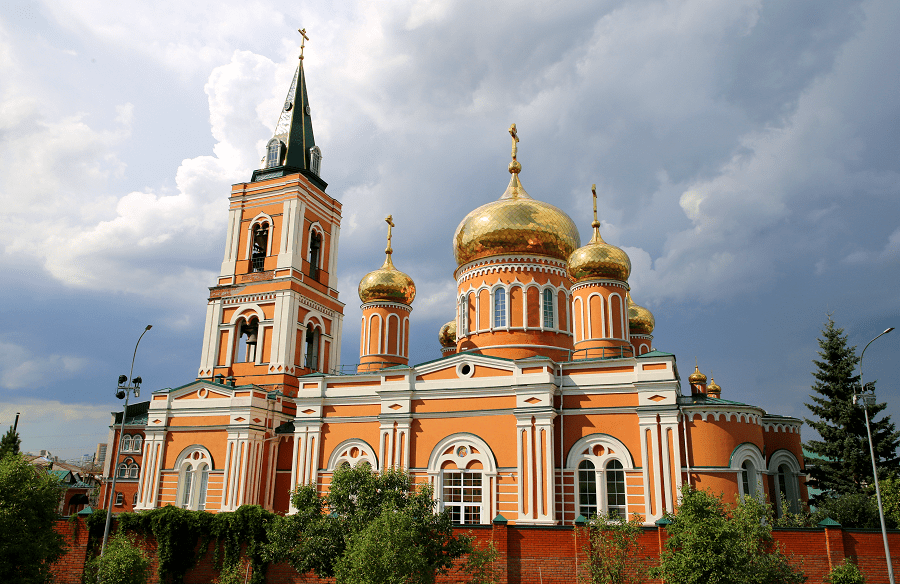Theaters, concert hall and entertainment in Moscow (42 objects in alphabetical order)
Animal Theater, named after Vladimir Durov (until 1982 – “Grandfather Durov’s Corner”), is a Moscow children’s animal theater founded on January 8, 1912, by a trainer, circus performer Vladimir Durov.
Bolshoi Theatre of Russia is one of the largest in Russia and one of the most significant opera and ballet theaters in the world. The complex of theater buildings is located in the center of Moscow, on Tetralnaya Ploschad. The Bolshoi Theatre, its museum, the building of the historical stage – an object of the cultural heritage of the peoples of Russia of federal significance.
Center for Oceanography and Marine Biology “Moskvarium” is an operating oceanarium built in Moscow on the territory of VDNKh park (Pavilion №23). The complex was built as part of the VDNKh restoration and integrated development program. The building, with a total area of 53,000 m2, includes three zones: a platform for aquariums and water shows and a swimming center with dolphins. On the ground floor, there are 80 aquariums with an area of 12,000 m2 with more than 600 species of various fish and animals.
Central Academic Theater of the Russian Army (until 1993 – the Central Academic Theater of the Soviet Army) is a Moscow academic drama theater founded on February 6, 1930. It has the largest stage in Europe. Since its inception, it has been a departmental theater of the Armed Forces of the USSR – many actors liable for military service “served” on its stage.
Central House of the workers of Art (TsDRI) in Moscow is a cultural and educational institution; creative club of artists (theater, fine arts, music, variety art, etc.). This house of artists, created on the initiative of the People’s Commissar of Education Anatoly Lunacharsky, was opened on February 25, 1930.
Grand Sports Arena of the Luzhniki Olympic Complex (until 1992 – the Grand Sports Arena of the Vladimir Lenin Central Stadium) is a Moscow stadium, the central part of the Luzhniki sports complex, located near the Sparrow Hills.
Great Moscow Circus is the largest circus in Europe, located in Moscow at the intersection of Vernadsky Avenue with Lomonosovsky Avenue. The building was designed under the guidance of architect Yakov Belopolsky. The circus opened on April 30, 1971. It has a system of five quick-change arenas. There is a separate rehearsal arena in the backstage area.
Et Cetera under the direction of Alexander Kalyagin is a drama theatre in Moscow. Opened in 1993. It is a state budgetary institution of culture. The theatre regularly goes on tour both in Russia and abroad. For example, in 2016-2017 the theater was in Columbia, Tbilisi, Belgorod, Kaliningrad, Kirov and Khabarovsk.
Evgeny Vakhtangov State Academic Theater is a drama theater in Moscow. It was founded in 1913 as the Student Drama Studio, led by Evgeny Vakhtangov. The official opening date of the 3rd studio of the Moscow Art Theater (MKhAT) is November 13, 1921, on this day the play “The Miracle of St. Anthony” was shown.
Khudozhestvenny is a Moscow cinema located on Arbatskaya Square (building 14). Opened in November 10, 1909. The oldest cinema in Moscow, one of the oldest in the world and one of the few operating cinemas with a hundred-year history.
Lenkom by Mark Zakharov is a Soviet and Russian state drama theater located in the Tverskoy district of Moscow, founded in 1927 as the Theater of Working Youth (TRAM). In 1937, it was merged with the Ruben Simonov Theater Studio.
Maly Theatre of Russia is a drama theatre in Moscow. One of the oldest theatres in Russia, which played an outstanding role in the development of Russian national culture. The first performance in it took place on October 14 (26), 1824. Its troupe was created at Moscow University in 1756, immediately after the decree of Empress Elizaveta Petrovna, which marked the birth of a professional theatre in the country.
Moscow Academic Musical Theater, named after K.S. Stanislavski and Vl. I. Nemirovich-Danchenko, is an opera and ballet theater in the Tverskoy district of Moscow.
Moscow Academic Theater of Satire is a drama theater in Moscow. It is located near the Mayakovskaya metro station on Triumfalnaya Square in the Tverskoy district of the Central Administrative District and opened on October 1, 1924, in the basement of house number 10 in Bolshoy Gnezdnikovsky Lane. In 2015, the Satire Theater was recognized as one of the most visited Moscow theaters: the halls were almost 90% full, and spectators exceeded 2.5 million.
Moscow Academic Vladimir Mayakovsky Theater (in 1922-1941 – the Theater of the Revolution, in 1941-1954 – the Moscow Drama Theater) is one of the oldest drama theaters in Moscow. Founded in 1922, located on Bolshaya Nikitskaya street.
Moscow Art Academic Theater, named after Maxim Gorky (Moscow Art Theater named after Gorky), is a drama theater in Moscow, founded in 1987 after the division of the Moscow Art Theater of the USSR into two theaters, named after the Russian writer Maxim Gorky.
Moscow Art Theater, named after Anton Pavlovich Chekhov, is a Moscow drama theater founded in 1987 after the division of the Moscow Art Theater of the USSR named after Maxim Gorky into two theaters. Since 1989, it has been named after Anton Pavlovich Chekhov, one of its principal authors.
Moscow Drama Theater on Bronnaya (from 1945 to 1968, the Moscow Drama Theater, from 1968 to 2021 – the Theater on Malaya Bronnaya) is a drama theater in Moscow, founded in March 1945.
Moscow International House of Music (MMDM) is a state budgetary cultural institution of Moscow and one of the largest philharmonic complexes in Russia and the world. It is a multifunctional cultural center aimed at developing contemporary performing arts. In the four halls of the House of Music – Svetlanovsky, Chamber, Theater and Novy daily performances of Russian and foreign symphony orchestras, chamber ensembles, instrumental soloists, opera and ballet artists, theater, jazz, pop and folk groups, international forums and festivals, creative evenings and presentations, festive shows and conferences take place.
Moscow Musical Theater “Helikon-Opera” is a musical theater in Moscow, founded in 1990. The troupe of “Helikon” exceeds 500 people. It includes an ensemble of soloists, many Honored Artists of Russia, laureates of international competitions and awards, and a symphony orchestra and choir. Almost all artists in the choir have diplomas of conductors or choirmasters.
Moscow Planetarium is one of the largest in the world and the oldest planetarium in Russia. Located in Moscow near the new territory of the Moscow Zoo, on the Garden Ring. It was built in 1927-1929 according to the project of architects M. O. Barshch, M. I. Sinyavsky and engineer G. A. Zunblat. At the time of its opening, the Moscow Planetarium was the only one in the country, the thirteenth in the world and Europe.
Moscow State Academic Operetta Theater (Moscow Operetta) or Mosoperetta is a musical theater in Moscow, the first state operetta theater in the USSR. The theater’s repertoire includes classical and modern operettas and musicals.
Moscow State Pyotr Ilyich Tchaikovsky Conservatory is a higher musical educational institution in Moscow, one of the leading musical universities in Russia and the world. The Great Hall of the Moscow Conservatory is one of the largest and most notable concert venues in Russia and the world. It opened on April 7 (20), 1901. The hall accommodates 1737 seats (originally, the hall accommodated 2486 spectators).
Mossovet State Academic Theater is a drama theater in Moscow, awarded the Orders of Lenin and the Red Banner of Labor. It was founded in 1923 by the writer and director Sergei Ivanovich Prokofiev as a theater of workers of the Moscow Provincial Council of Trade Unions (MGSPS). It received its current name in 1938.
Moscow State Theater “Nikitsky Gate Theater” is a drama theater located in the Tverskoy district of Moscow. The theater was founded in 1983 by director and playwright Mark Rozovsky. The status of the state theater was officially assigned on October 1, 1991.
Moscow Theater “School of the Modern Play” is a drama theater founded in 1989 and located in Moscow. The theater opened with a performance by Iosif Reichelgauz, “A man came to a Woman,” which premiered on March 27, 1989.
Moscow Zoo is a zoological park in the center of Moscow. One of the oldest zoos (1864) in Europe and the fifth largest zoo in Russia after the zoos of Yaroslavl, Rostov-on-Don, Novosibirsk and Krasnoyarsk. It is one of the ten most visited zoos in the world (up to 3.8 million people a year).
MOST Theater (Moscow Open Student Theater) is Moscow’s state budgetary cultural institution. The modern MOST theater was opened in 2000 by a decree of the Moscow government at the request of the All-Russian Theater Society.
Nikulin Circus on Tsvetnoy Boulevard is one of the oldest stationary circuses in Russia. The hall’s capacity is 2000 seats, the dome’s height is 25 meters, and the diameter of the arena is 13 meters. From 1880 to 1913, this circus was named after the founder Albert Salamonsky.
Ostankino Television Technical Center is an organization of the Federal Agency of the Russian Federation for Press and Mass Communications in the form of a federal state unitary enterprise that conducts the technical part of preparing and producing television and radio programs. This enterprise has a program radio and television center, which includes two hardware-studio complexes (with 60 studios and a large concert studio) and several mobile television stations.
Russian Academic Youth Theater of the Order of Lenin (RAMT) is a federal state budgetary cultural institution in the field of dramatic theatrical art for children and youth in Moscow. Founded in 1921 as the Moscow Theater for Children.
Russian State Library of Foreign Literature is a federal library specializing in foreign literature (Moscow). Founded in 1921 as the library of the Neophilological Institute. The new building with an area of 24,000 m² was completed by the beginning of 1965. The building had an eight-story bookstore, 14 reading rooms and a conference hall with 400 seats. By this time, the library fund was 4 million items, and the staff consisted of 700 people. The opening took place on May 31, 1967.
Sovremennik Theatre is a state drama theatre located in the center of Moscow, on Chistoprudny Boulevard at 19A. Founded in 1956 by a group of young actors – graduates of the Moscow Art Theater School.
Sparrow Hills (Vorobyovy Gory) – the name of the area in the south-west of Moscow, which is a high right bank in the bend of the Moskva River (a steep cliff of the Teplostan Upland, washed away by the river), covered with a forest park. After the dismantling of the old cable car, the construction of a new one for the World Cup in 2018 began, the task of which is to connect Luzhniki and the observation deck on Sparrow Hills with an intermediate stop on Vorobyovskaya Embankment.
Stanislavski Electrotheater (from 1948 to 2013 – the Moscow Drama Theater named after K. S. Stanislavski; from 1946 to 1948 – the Opera and Drama Theater named after K. S. Stanislavski) is a theater in Moscow. Founded in 1935 as the Opera and Drama Studio under the direction of Konstantin Stanislavski, a drama theater has been operating since 1948.
State Academic Central Puppet Theater, named after Sergey Vladimirovich Obraztsov (GATsTK), is the largest in the world. It is located in Moscow at number 3 on Sadovaya-Samotechnaya Street (Garden Ring).
Taganka Theatre is a drama theater on Zemlyanoy Val Street (Garden Ring) in Moscow, Taganskaya square. It was founded in 1946 as the Moscow Theatre of Drama and Comedy and transformed into the Taganka Theatre in 1964 by Yuri Lyubimov.
Tchaikovsky Concert Hall is the building and concert hall of the Moscow State Academic Philharmonic, opened in 1940. The hall hosts music festivals, concerts of academic music, poetry evenings and performances. In total, about 300 concerts are held a year, which more than 350 thousand people annually attend.
Theater “Russian Song” (Theater of Nadezhda Babkina) is a Moscow State Academic Theater “Russian Song.” The theater’s large stage is in the Diamond Hall business center, and the small stage is on Sadovaya-Chernogryazskaya Street (Moscow). The theater has a children’s and youth folklore studio.
Theater “Workshop of P. N. Fomenko” is a Moscow theater founded by Pyotr Naumovich Fomenko in 1993. The new multi-level theater building is located on the high slope of the Moskva River.
Turgenev Library-Reading Room is the first public free city public library in Moscow, near Myasnitskaya Street. Founded in 1884 on the initiative and at the expense of Varvara Alekseevna Morozova to perpetuate the memory of the great Russian writer Ivan Sergeevich Turgenev.
Yermolova Theater Center is a drama theater in Moscow on Tverskaya street, formed in 1925. Since 1946, it has been in the building of the former passage of the Postnikovs. The theater’s repertoire is represented by performances based on works of world classics and performances of experimental genres.




